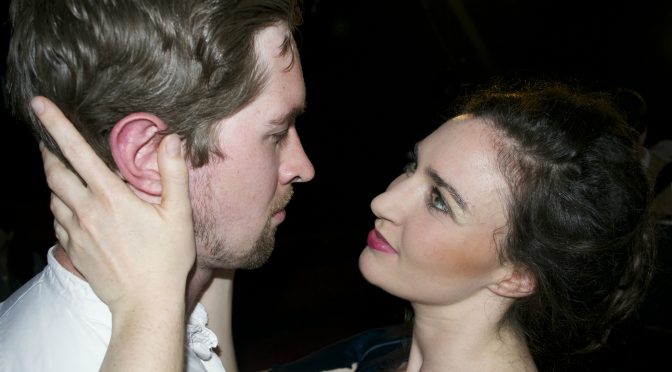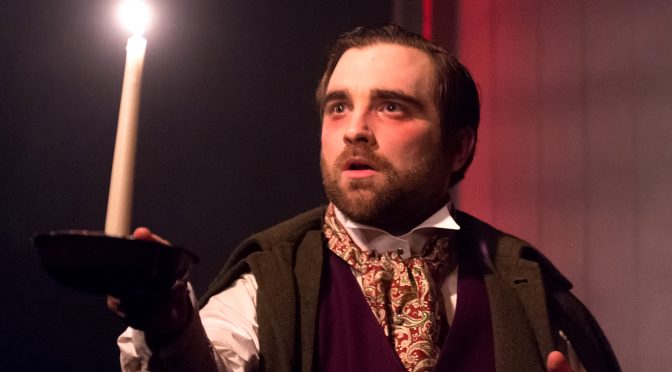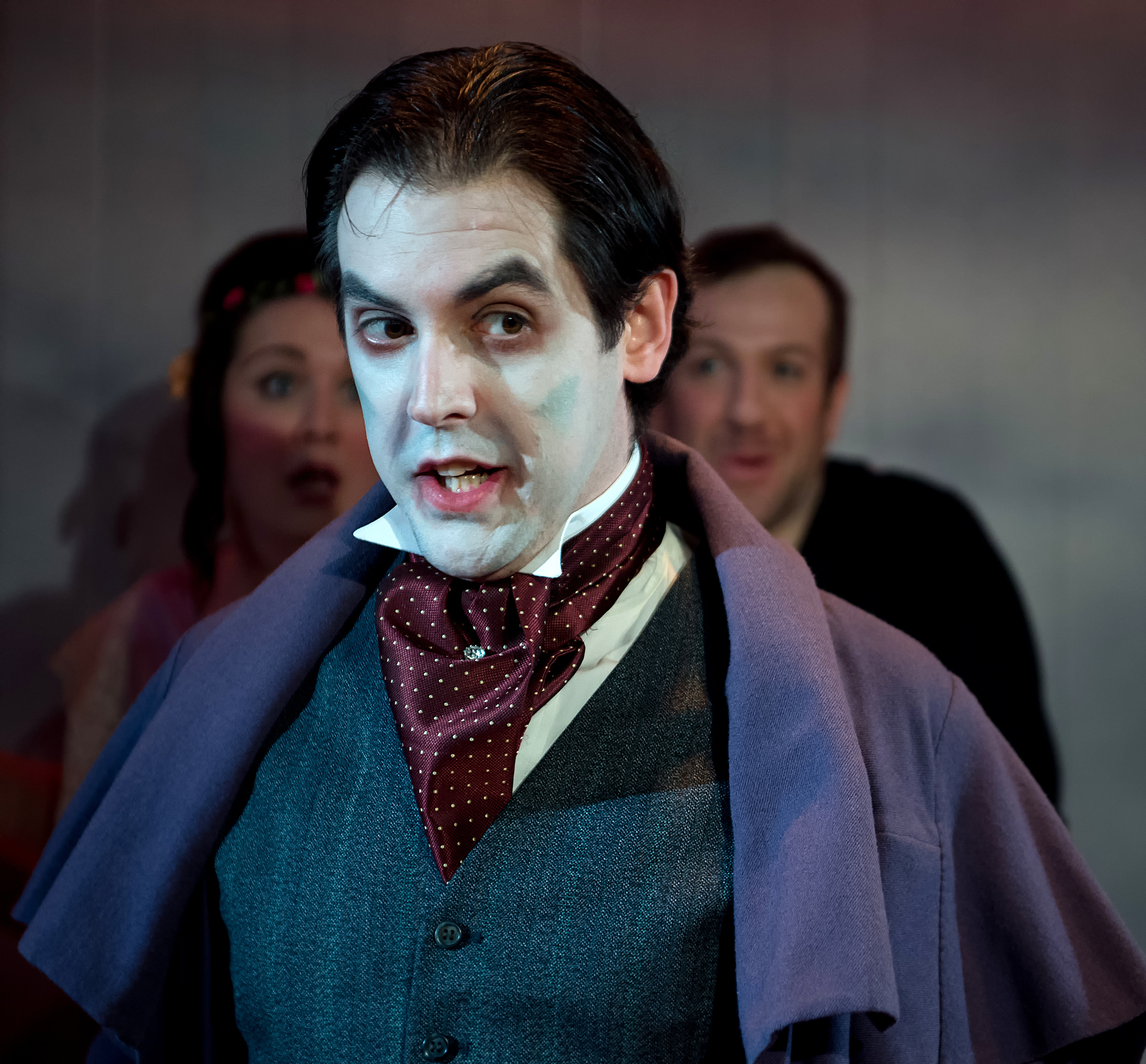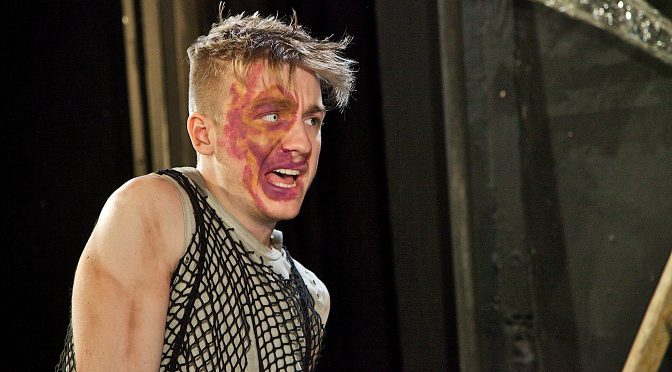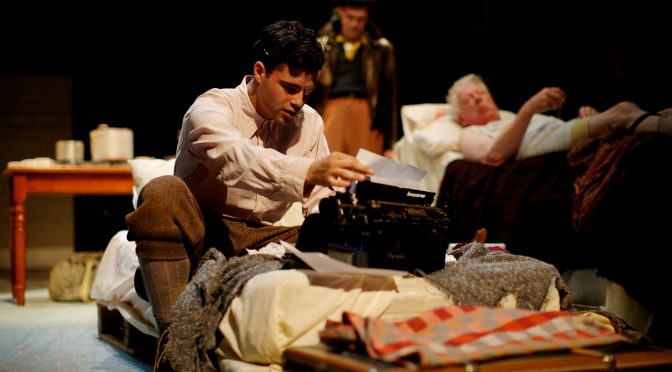Given the fame of Stephen Sondheim’s Sweeney Todd, It might seem brave, possibly foolhardy, to make another musical about the same subject. I’m no pushover – Sondheim’s masterpiece is one of my favourite pieces – but the Another Soup company has managed to create its own take on the tale of the demon barber admirably. Although it’s hard not to, making comparisons feels unfair; let’s just say Lovett + Todd is sensibly different to ‘that other musical’, with a blissful brand of wicked humour ensuring the work stands happily on its own.
The focus is on the villainous Cornelia Lovett… and her sister, Amelia. Starting with their impecunious lives before London, we discover Amelia has a baby farm that provides infant meat for Cornelia’s cannibal pies. On Fleet Street, Sweeney Todd is captivated by lust for Cornelia and becomes her co-conspirator, puppet and, eventually, fall guy. This neat retelling provides two great female villains. Rachael Garnett is wonderfully sinister as the nefarious baby farmer and Louise Torres-Ryan glorious as the world’s worst baker. Daniel Collard has a more serious job, and provides tension as the confused, sensitive shaver, who is almost redeemed by his remorse.
It’s not just the story that feels freshly reheated – it’s the also the telling. Dave Spencer’s book and Jo Turner’s music grab attention any which way. The lyrics bring laughs and the music is even funnier: a mix of accordion, guitar and keyboards with a barbershop quartet, a faux-romantic ballad and even a tango. A previous version of the show was promenade and you can see vestiges of this in some audience participation (beware the front row). Along with the always welcome opportunity to hear singers unmiked, this show surprises – not least in that it hasn’t bitten off more than it can chew.
Until 1 August 2015
Photo (c) Another Soup

